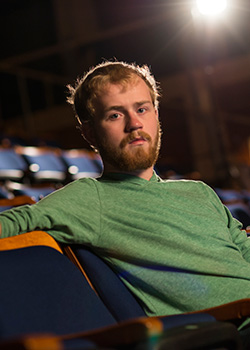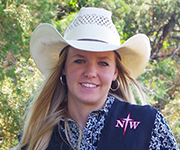This I Believe
By Jacob Christiansen

DOUG BURG
“Sticks and stones may break my bones, but words will never hurt me!” It seems like eons ago that I used that childhood proverb to combat a playground bully’s stinging verbal attacks.
I may have believed it then—but I don’t any more. I haven’t since my sophomore year in high school. Now I believe in the power of words. I understand they have the power to damage a person more than any stick or stone. They also have the power to heal. In fact, I believe words have the power to change the world. Believing in the power of words changed me.
I’m not proud of my former carelessness with words. I swore constantly. I told gay jokes. I made racial slurs. I said things I cannot repeat, all the while believing that words never hurt anybody. I lived my life as if the things that came out of my mouth never had any effect on my head or my heart.
Then I joined the Millard South debate team. All I really wanted from debate was to learn more about politics and the world. I did learn a lot about politics, but something else happened too. Debate wasn’t just about the government and law; we also discussed morality and human worth. We studied critical gender theory, capitalism and bio-politics. We read philosophers like Foucault, William S. Burroughs, and Georges Bataille.
My debate prep led me to read other philosophers and thinkers. Late one night before a major tournament, I was reading something by Brent Henze, a professor of English and rhetoric at East Carolina University. Much of Henze’s career has been dedicated to studying the use of rhetoric and discourse in cultural and social discrimination. He explores how words are used to tear society apart and build it up. One essay, “Who Says Who Says?” argues that the voices and the words of the people at the bottom rungs of society can be a force for change.
Henze says, “Starting off thought from the lives of the oppressed is useful for grounding the knowledge of outsiders seeking to understand their own complex relations to systems of oppression.” In other words, by beginning our discourse from the standpoint of oppressed people, we can begin to combat the system that exploits them.
The idea of language and discussion as a catalyst for social change astounded me back then. I’d believed that only actions can change things—that words are only important if they’re the precursor to some sort of movement. But Henze was arguing that words have power. I began reading more about the power of words. I broadened my literary horizons, reading authors like Gloria Anzaldúa who believe in words and their impact.
My self-education in discourse continued through the rest of high school and into college. I’m a theatre major, and I plan to use theatre to bring the stories of the oppressed into the light. I believe the voices of people clinging to the bottom rungs of society need to be heard. As a white, middle-class male, it’s important for me to hear the words of someone who is black, or poor, or living on the margins of society—and then repeat them as a way to further understanding.
If people are willing to talk about issues that are uncomfortable and listen to viewpoints that are challenging, I believe words can change the world.
Jacob Christiansen is a sophomore theatre major from Omaha, Neb. He wrote this essay—patterned after essays written for “This I Believe,” an international dialogue about belief (thisibelieve.org)—for a First-Year Seminar assignment last year.
 Northwestern launches the First-Year Seminar, a course
designed to help freshmen adjust to college, connect with
each other, and discover their role in God’s world.
Northwestern launches the First-Year Seminar, a course
designed to help freshmen adjust to college, connect with
each other, and discover their role in God’s world. A new grand entrance was among the capital projects funded by the Imagine Campaign, which raised $48 million to transform student learning on and off campus.
A new grand entrance was among the capital projects funded by the Imagine Campaign, which raised $48 million to transform student learning on and off campus. Cowgirl Erin Van Horn is Northwestern’s one-woman rodeo team.
Cowgirl Erin Van Horn is Northwestern’s one-woman rodeo team.
Classic Comments
All comments are moderated and need approval from the moderator before they are posted. Comments that include profanity, or personal attacks, or antisocial behavior such as "spamming" or other inappropriate comments or material will be removed from the site. We will take steps to block users who violate any of our terms of use. You are fully responsible for the content that you post. Comments posted do not reflect the views or values of Northwestern College.